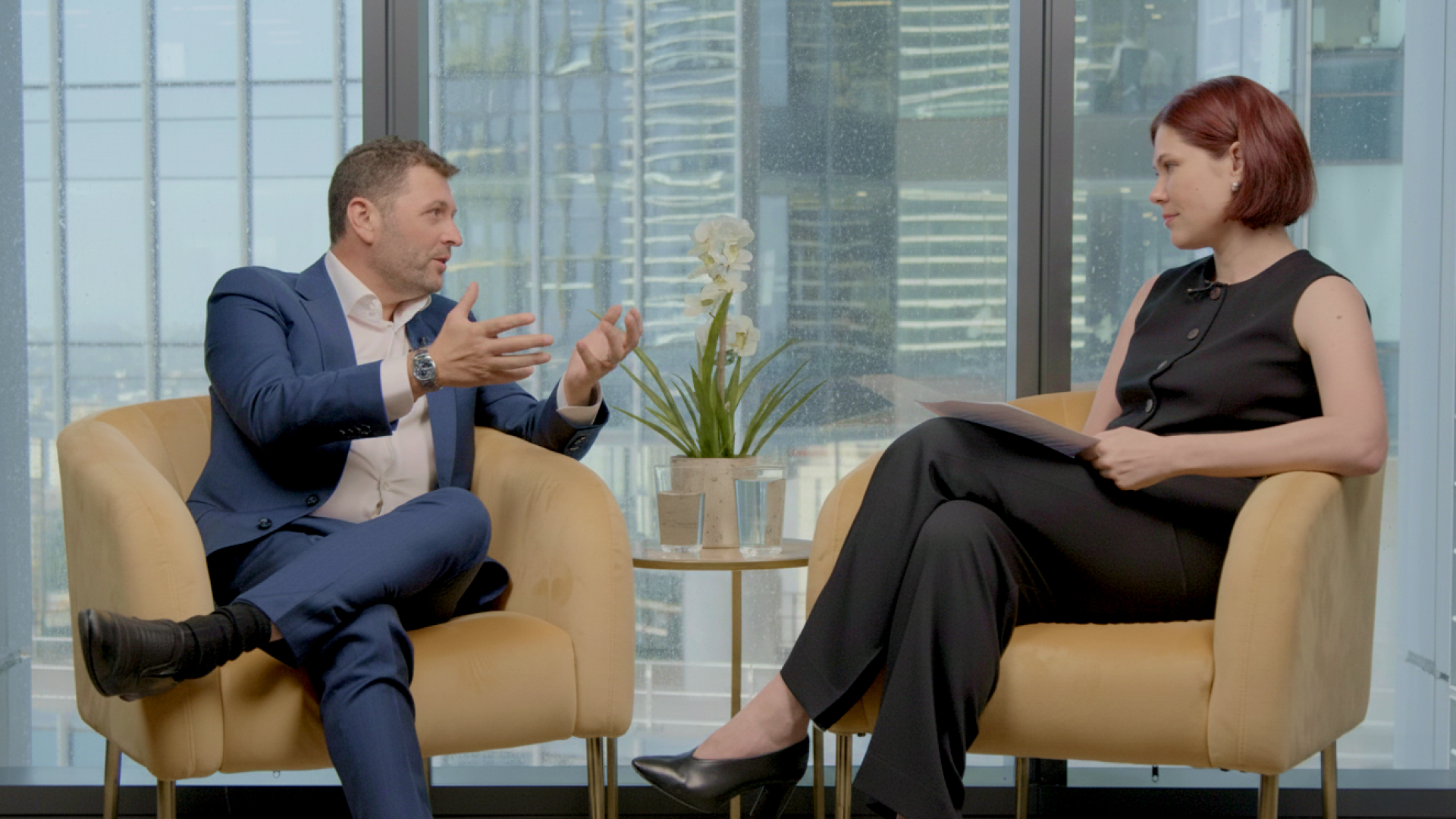Inside Msquared’s approach to steady income in a higher-risk world
Please note this interview was filmed 16 October, 2025.
In a world where traditional fixed income has struggled to deliver attractive returns and market concentration has limited opportunities, investors have turned to alternative sources of yield. Private credit has been one of the fastest-growing corners of the investment universe, but as Paul Miron, Co-founder of Msquared Capital explains, not all private credit strategies are created equal.
Founded in 2018, Msquared was born out of Miron’s experience in banking and finance, where he saw an opportunity for investors who wanted to participate in private credit and borrowers who required alternative forms of finance.
Today, the firm runs two core strategies: the Msquared Mortgage Income Fund and the Msquared High Yield Mortgage Income Fund, each designed to meet different investor needs.
The search for simplicity and stability
The Msquared Mortgage Income Fund was designed in direct response to investor demand for clarity and consistency.
“The demand came from our investors that they wanted something that was very simple to understand and had a certain mandate and parameters,” Miron says.
The fund provides exposure to short-term loans secured against completed property, with an average loan term of around seven and a half months and gearing at roughly 55%.
Importantly, it excludes construction loans, rural property, second mortgages, and other forms of “specialised security,” which Miron says tend to carry higher risk.
“All the property that we have in that particular fund is completed property," Miron explains. "It means that in any type of cycle, within six weeks, we can put that property on the market.”
The fund caters to self-directed retail investors, SMSFs and religious organisations, among others, who are seeking monthly income and capital stability. “It’s purposely designed to find what we believe is the best risk rate of return in the marketplace for private credit,” says Miron.
Catering to the higher-yield investor
While the Mortgage Income Fund focuses on stability, the High Yield Mortgage Income Fund is built for investors who are comfortable taking on a touch more risk for a higher return.
“There’s another cohort of investors who want to have a higher return, and they’re comfortable with that risk as well,” Miron says.
The High Yield fund includes loans with higher loan-to-value ratios or limited exposure to construction. Miron says the strategy targets opportunities that are hard for individual investors to access, while maintaining a strong risk discipline.
“If you ask many investors whether they believe that properties in blue-chip areas are going to fall more than 20%, 30%, or 45%, they say unlikely. And so therefore they’re very happy with that return,” he adds.

Why now for private credit?
Private credit is attracting more attention than ever before, both in Australia and globally. Miron argues that Australia stands apart for its quality, legal protections, and risk-adjusted returns.
“If you look at it from a global perspective, [Australian private credit] is considered to be the highest quality in the world,” he says. “In the US, margins are compressed so much — the investor’s only getting 1% above cash rate. Here, it’s about three to five.”
Australia’s legal framework also adds a layer of investor protection. “If you default on a mortgage and you have a personal guarantee, you’re going to lose all the other assets as well,” he explains. “It’s a very big stick… in relation to the right type of behaviour from borrowers.”
For investors who know where to look, Miron believes private credit offers “an asset class that has asset preservation qualities and gives you very healthy returns.”
Risk management through discipline and transparency
As the sector expands, Miron is quick to note that risk varies widely between managers and between loan types.
“There is a huge difference between a first mortgage and a second mortgage,” he cautions. “There’s a huge difference between risk when you’re lending against a construction loan.”
For Msquared, managing those risks starts with what they don’t lend against. “We don’t touch specialised security,” Miron says. “The likely chance of losing money on a specialised security is a lot higher.”
The firm also places a strong emphasis on transparency. “Investors call our team to talk about individual deals. We even give an opportunity for our investors to see the full build book of all of the loans in our funds. We have nothing to hold back,” he says.
The evolving role of private credit in portfolios
For Miron, private credit isn’t just a way to access yield - it’s part of a broader structural shift in how investors build portfolios.
“The traditional 60/40 split doesn’t necessarily work as well going forward,” he notes. “There’s much more appetite for income, much more appetite for asset preservation type of asset classes and alternatives.”
Learn more
Msquared Capital provides its investors with high-quality, risk-rated returns, payable monthly, backed by property. For more information, visit their website or fund profiles below.
.png)
.png)
2 funds mentioned

.jpg)
.jpg)